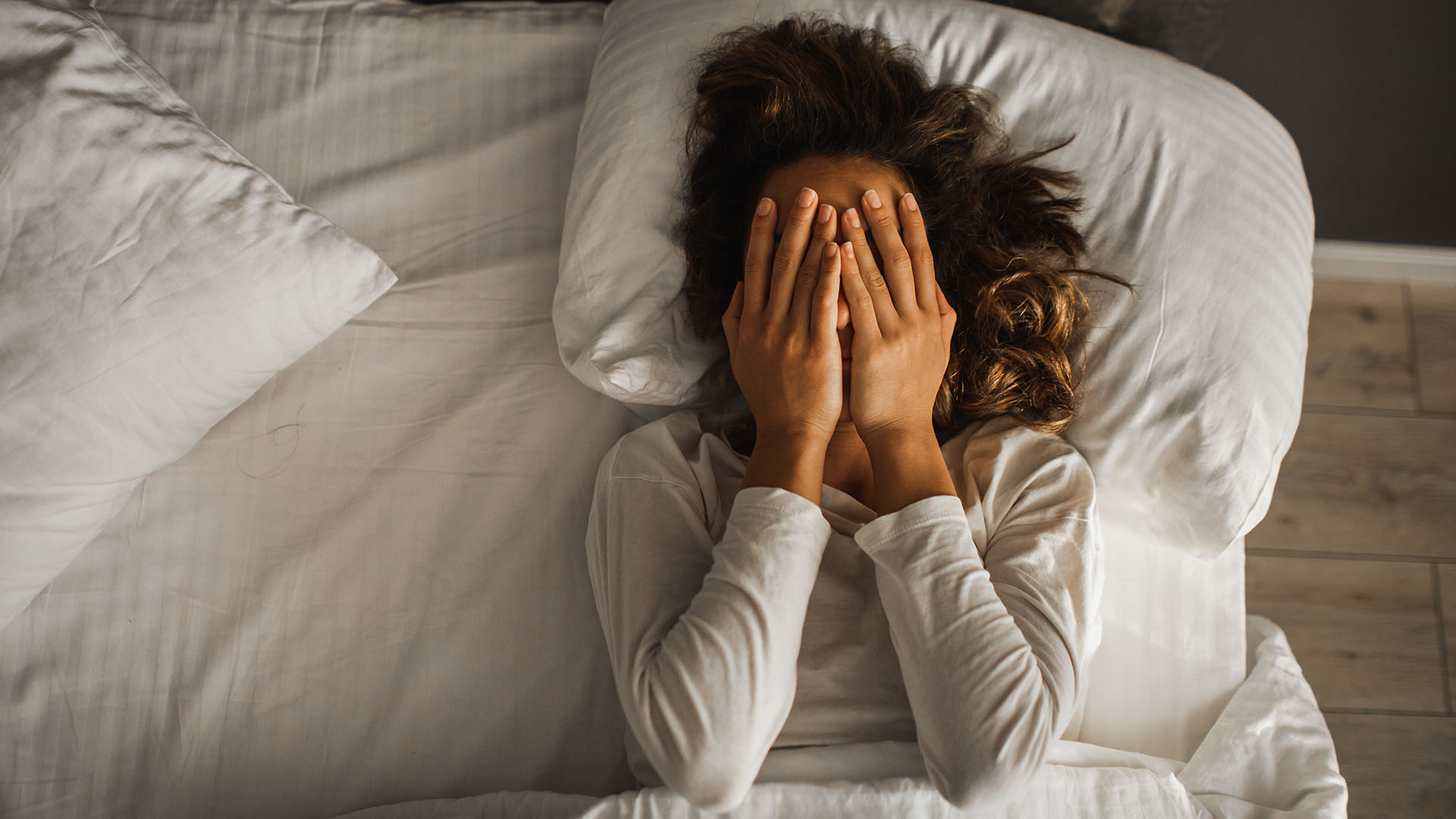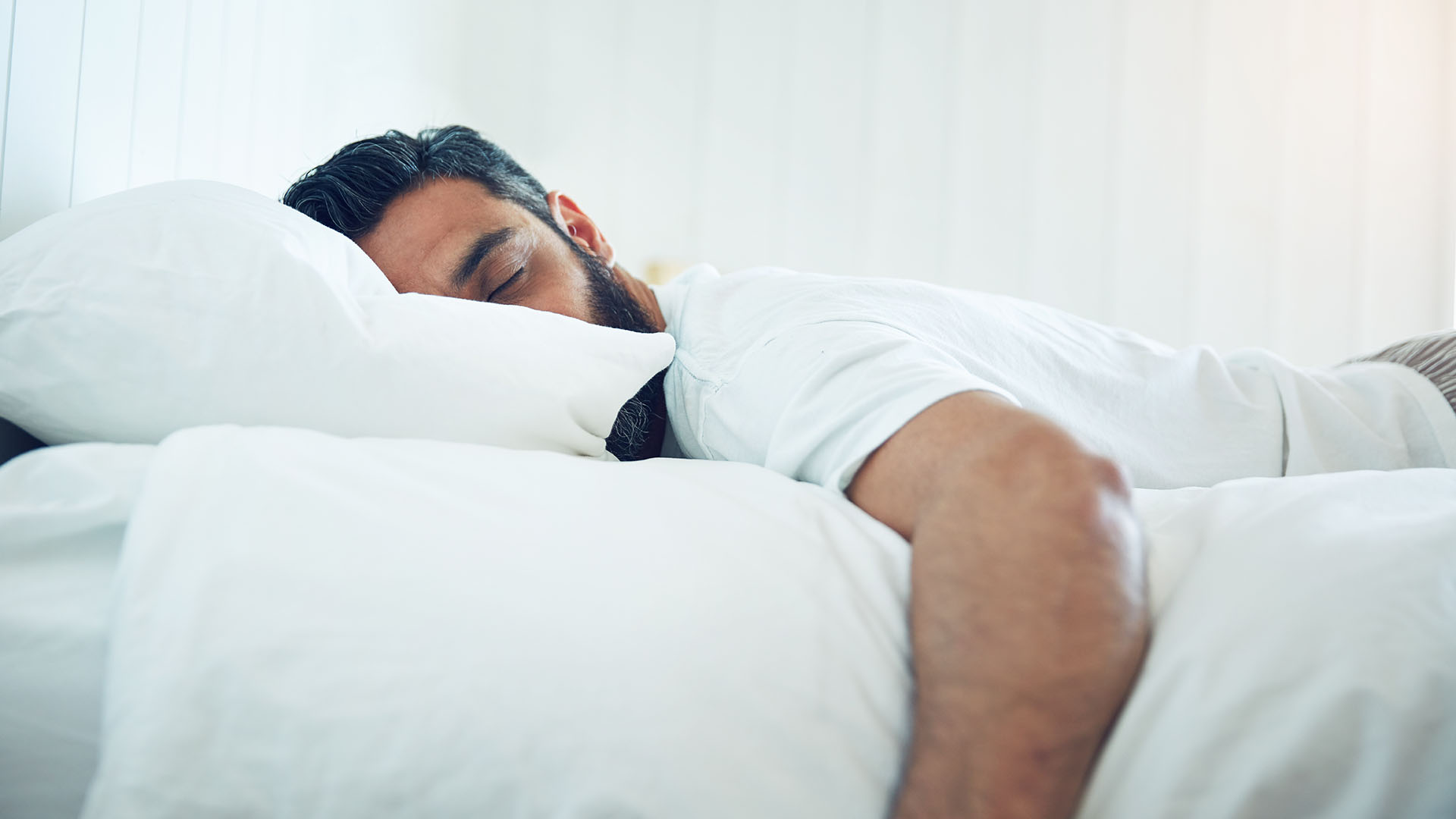Study reveals the best iPhone alarms to wake you up refreshed and ready to go
Want to become more of a morning person? These are the best alarm sounds to fight off grogginess

There are plenty of factors that affect how awake you feel in the mornings. Your genes come into is, as do your lifestyle choices, and of course, how well you slept the night before. But one aspect you might not have fully considered before is your alarm tone.
You might think that any tone that jolts you out of sleep and into wakefulness is doing its job perfectly well, but there's more to it than that. Apparently some alarm tones can help you start the day feeling refreshed and ready to go, while others are prone to exacerbating feelings of sleep inertia, so you wind up feeling groggy, sleepy and confused. And a new report has helpfully ranked the iPhone alarms so you know which ones to opt for to give you the best start to your day.
What makes a good alarm tone?
According to a study into the effects of melody and rhythm on sleep inertia, there are three main characteristics that make for a good alarm sound.
You're looking for a tone that has an easy melody – one that you could sing or hum along to. It shouldn't be too fast or too slow (100-120 beats per minute is the optimum). And it should have a dominant frequency around 500 Hz, or be in the key of C5. A tone with those characteristics should, scientifically, give you the best chance of starting the day feeling alert and ready to go.

What are the best and worst iPhone alarms?
The music and behavioral science experts at Startle have used the markers above to rank the default alarm tones available on your iPhone. If you're one of the 2.2 billion iPhone owners, this is your cue to double-check what setting you've got in place, and consider if it's time to switch things up.
The 5 best iPhone alarm sounds
The 5 worst iPhone alarm sounds
Get instant access to breaking news, the hottest reviews, great deals and helpful tips.

Exactly how do alarms work, anyway?
To understand this a bit more, it could help to understand the mechanism of an alarm clock and the effect it has on your body.
“The process of waking up is controlled by your reticular activating system (RAS). This restricts how your body responds to external stimuli when asleep and how you transition to being awake. An alarm clock is designed to stimulate the RAS, telling your body to wake up," explains Luke Cousins, Physiology Regional Lead at Nuffield Health.
“The jolt of an alarm clock can be especially strong if you’re in the deep sleep phase of sleep, leaving you with an increased heart rate and groggy feeling in the morning that can last several hours,” he adds.
5 more ways to keep sleep inertia at bay
You've set the right alarm, but is there anything else you could do to give yourself the best chance of rising and shining this new year? Winter is a (scientifically) difficult time to get out of bed, but there are some things you can do to make the situation better.
Of course, if it's your sleep setup that's causing the problems, it's worth investing in an upgrade if you can. Our best mattress guide has all of our tried and tested recommendations, and our mattress sales roundup shows you where to find the best bargains.
1. Get in touch with your internal clock
Figuring out when's the most natural time for your body to wake up is a good place to start. "Waking up at the end of a sleep cycle, when you’re sleeping the lightest, is the best way to wake up feeling refreshed. This is also when it is easiest for external stimuli, like noise and light, to wake you up," explains Luke. Understanding your genetic chronotype can help with this. If you're a night owl, you'll find it easier to wake up slightly later. If you're an early bird, focus on going to bed earlier too, so you can get up bright and early having had enough sleep.
2. Keep to consistent sleep-wake times
"Your body’s internal clock is sensitive and keeping an irregular schedule can make it difficult for your body to adjust to different waking times," says Luke. That goes for weekends, too. Ideally, adults should be aiming for eight hours a night. If you struggle to drop off, the Navy SEAL sleep technique is a popular method you could try.
3. Try a wakeup light
Light and dark have a big influence on our sleep-wake cycles, which is part of the reason why getting up on dark winter mornings is so tricky in the first place. Instead of an alarm, you could consider investing in a wakeup light. These brighten gradually over a set period of time, mimicking the sunrise and helping wake you up in a more natural way. "Allowing light to filter into your room slowly is a great way to signal to your body that it’s time to wake up," explains Luke.
4. Resist the snooze button
"Consistently hitting the snooze button can mess with your body’s clock," says Luke. "Not only is a ten-minute snooze not long enough to get some restorative sleep, but it can increase your heart rate and make you feel even more tired when your alarm goes off again."

Ruth is currently Homes Editor on Tom's Guide's sister site TechRadar, where she reviews and writes about everything from air fryers to vacuum cleaners to coffee machines, as well as the latest smart home gadgets. Prior to making the shift to Homes, Ruth was Tom's Guide's Sleep Editor. A certified Sleep Science Coach, she has tested more mattresses than her small flat can handle and will talk at length about them to anyone who shows even a passing interest.
 Club Benefits
Club Benefits





